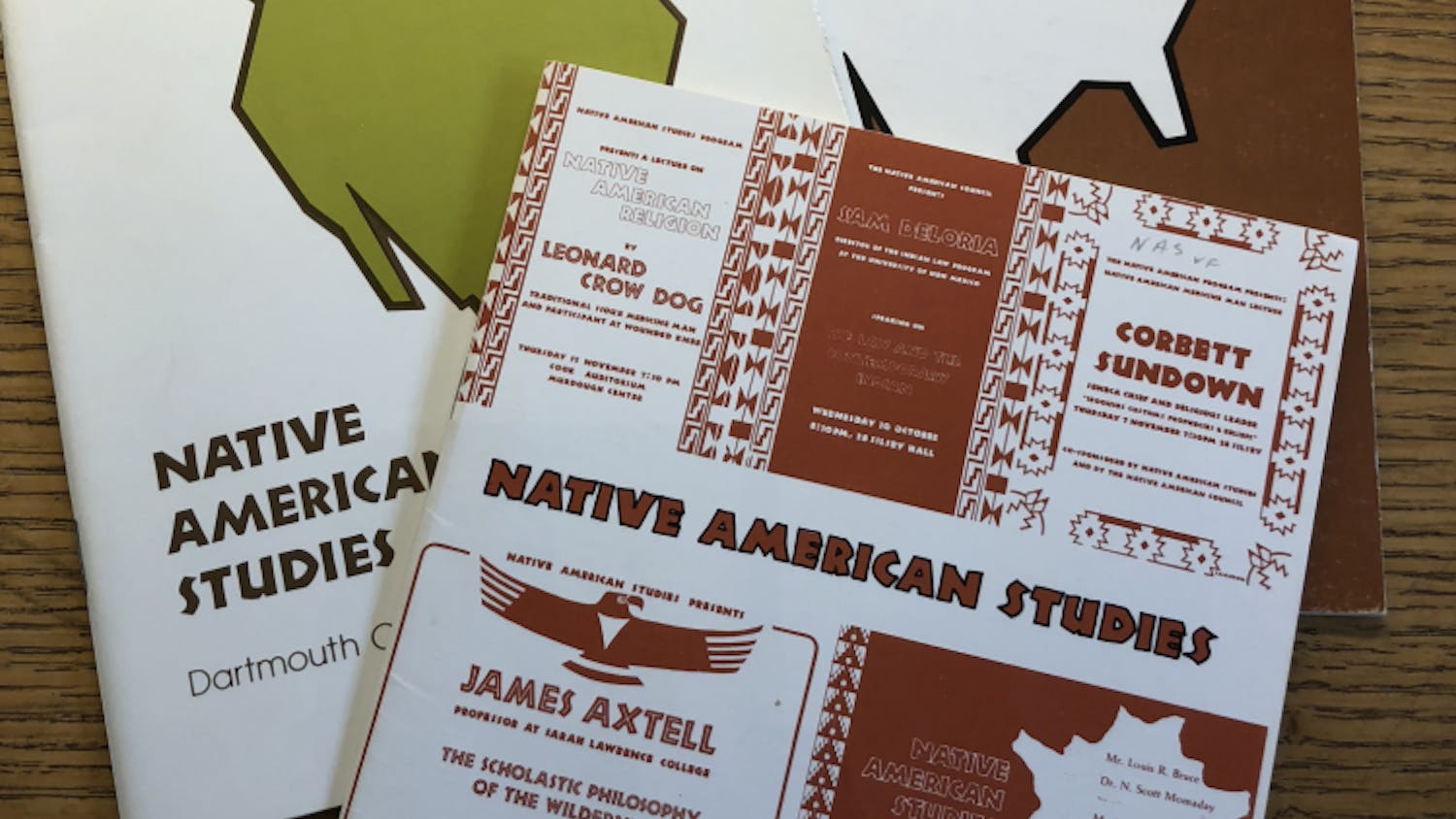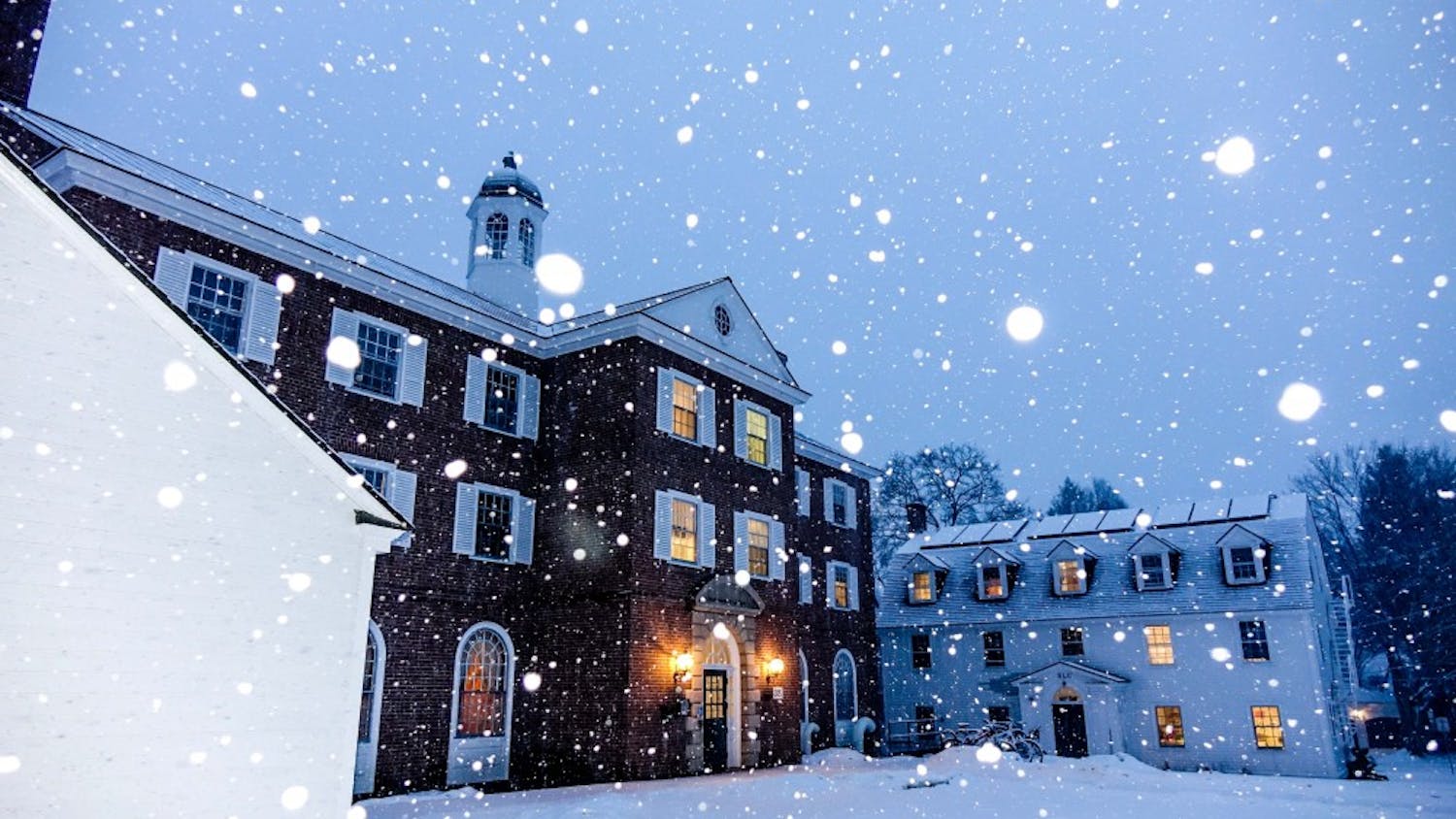Dartmouth has a reputation as an institution that excels at both research and undergraduate teaching. Incoming students are likely familiar with this notion, having read it in admission pamphlets or heard it during campus information sessions. Like its students, many of the College’s faculty chose to pursue a career at Dartmouth because of this dual excellence. But this double goal — quality teaching as well as quality research — isn’t achieved without challenges.
According to provost Joseph Helble, Dartmouth faculty are encouraged to build comparable research programs to those of other top-ranked research universities. At the same time, he said, they are held to higher teaching expectations.
“It’s a challenging space to operate in.” Helble said, “Because if your entire institutional focus was on teaching as it is at most small liberal arts colleges — in most of the NESCAC schools for example — almost all of your resources are devoted to teaching. This is the focus of the institution. You’re not being asked to do two challenging things at the same time.”
Physics and astronomy department chair John Thorstensen said that many small liberal arts colleges, such as Williams College and Amherst College, publish high-quality research, but he described those institutions as an “exception to the rule.” He noted that faculty at small colleges solely focused on undergraduate teaching often do not have the time to maintain strong research programs.
“Basically, the teaching loads for people at those schools are so high that they really don’t have a lot of time to stay highly competitive, for the most part,” he said.
At Dartmouth, faculty in the sciences teach around three courses a year, and faculty in the humanities and social sciences teach about four, according to Thorstensen. He added that the teaching loads of Dartmouth faculty are larger than those of faculty at most research universities, though he said they are not “huge,” as at some smaller colleges. He noted that larger teaching loads require faculty at Dartmouth to put many hours towards both teaching and research.
“It’s not an easy job being a Dartmouth faculty. There’s basically two full-time jobs,” Thorstensen said.
He added that Dartmouth’s dual focus and small size can make it difficult for the College to compete with the research programs of large research universities. In 2018, Dartmouth regained its “R1” status — the top research classification determined by the Carnegie Commission on Higher Education — after losing it in 2015.
“Dartmouth clings to its R1 status by a rather slender thread,” Thorstensen said. “We’re not Harvard, we’re not Yale, we’re not Princeton in terms of sheer size. We don’t have a graduate school which is as big as the undergraduate school, for example. We just don’t have that kind of horsepower.”
Thorstensen said this means that the College has to work harder than other universities to maintain its R1 status.
Quantitative social science program chair Michael Herron and Thorstensen both said that expectations for scholarship and research have become more rigorous in the time they have been at Dartmouth. Thorstensen said he attributed the heightened focus on research to the more competitive market for faculty members in academia. As an example, Thorstensen pointed to the astronomy department’s 2011 hiring of professor Ryan Hickox, who he said was chosen from a pool of 149 applicants.
“In many fields, academic fields, there are far more people out there who would like an academic job than there are academic jobs available,” Thorstensen said. “So we can really find, because it’s such a buyer’s market, so to speak, incredibly strong people to populate the Dartmouth faculty.”
Herron said that in the social sciences, the College hires new faculty primarily based on their research records. He said that teaching ability is considered, but that most applicants who consider Dartmouth are already interested in balancing research and teaching.
He added that he has seen the College increase its focus on good scholarship, but does not see the shift as threatening Dartmouth’s liberal arts model.
“The world moves faster than it did 20 years ago,” Herron said. “I do think there is more of a focus now on making sure that the faculty members are better scholars. Now, I don’t think that means that we’re becoming a research university. I see that it’s sort of making sure that the liberal arts model is good.”
The College does allow for a certain level of flexibility and some “ebb and flow” between teaching and scholarship, according to Thayer School of Engineering Dean Alexis Abramson.
“Certainly, if a faculty member wins a big grant or a big award and his or her attention is drawn away for a few years, he or she might not spend as much time in the classroom,” she said. “But then they return three years later when the grant is winding down and are able to bring all of the great lessons learned or the research conducted back into the classroom.”
Herron said he believes faculty members who conduct research can be better teachers for their students, as academic fields are constantly changing, and it is important to have “people who are at the forefront” of these changes. In most cases, he said, those people would be publishing, active scholars.
“You really want people teaching you who are publishing, because the fields change, the areas of interest change, the techniques change,” he said. “You want to make sure you’re being taught by the people who are at the forefront. And those people are publishing and they’re active scholars.”
Nina Pavcnik, economics department chair, said she agreed that a focus on scholarship ultimately benefits undergraduate students. She said that rather than teach five to six courses with different themes, Dartmouth faculty can specialize in and keep updating a small number of courses.
She noted that she has taught ECON 49, “Topics in International Economics,” a “culminating experience” course, for 15 years, but teaches a “completely different” curriculum today from when she began teaching the course.
Herron added that the teacher-scholar model allows students to learn the most relevant material from their professors.
“I can teach the latest techniques, teach what the literature is engaging [today], as opposed to saying, ‘What did the literature engage 20 years ago?’” he said. “[In QSS,] we’re trying to teach students what’s going on with data science and all that’s new. And if I were teaching what was new when I was in grad school, that would not be good for the students.”
This article is a part of the 2019 Freshman Issue.
Rachel is a '21 from Plainsboro, NJ and is currently serving as the editor-in-chief of the 177th directorate. She is pursuing a double major in economics and philosophy.



